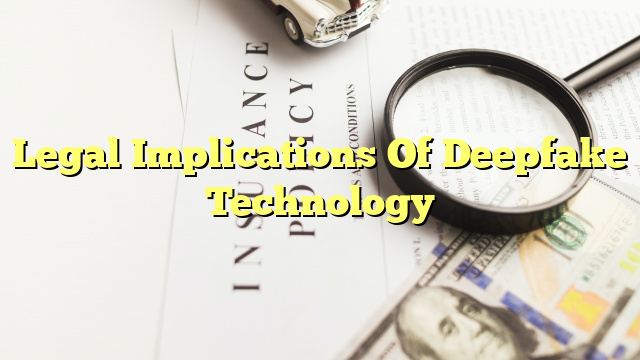Table of Contents
Legal Issues with Deepfakes
Deepfake technology, which involves the use of artificial intelligence to create realistic fake videos or images, raises several legal concerns. One of the primary issues is the potential for defamation. Deepfakes can be used to create false and damaging content about individuals, leading to reputational harm. Victims of deepfake defamation may experience significant emotional distress and damage to their personal and professional lives.
Another legal issue is the violation of privacy rights. Deepfakes can be used to create non-consensual explicit content by superimposing someone’s face onto explicit material. This can result in severe emotional distress and invasion of privacy for the individuals targeted.
Intellectual property rights are also at risk with deepfake technology. Deepfakes can be used to create fake videos or images that infringe on copyrights, trademarks, or other intellectual property rights. This can lead to financial losses for the original creators and damage to their reputation.
Laws Against Deepfakes
Currently, there are limited specific laws targeting deepfake technology. However, existing laws can be applied to address some of the legal issues associated with deepfakes. For example:
- Defamation laws can be used to hold individuals accountable for creating and spreading deepfake content that harms someone’s reputation.
- Privacy laws can be invoked to protect individuals from the non-consensual use of their images in deepfake explicit content.
- Intellectual property laws can be utilized to address deepfake creations that infringe on copyrights or trademarks.
Efforts are underway to develop specific legislation targeting deepfakes. Some proposed laws aim to criminalize the creation and distribution of deepfakes without consent. These laws would provide additional protection to potential victims and impose penalties on those who create and spread malicious deepfake content.
Suing Someone for Making Deepfakes
It is possible to sue someone for making deepfakes, depending on the jurisdiction and the specific circumstances. As mentioned earlier, defamation, privacy, and intellectual property laws can be used to hold individuals accountable for creating and disseminating deepfake content.
To successfully sue someone for making deepfakes, the following elements need to be established:
- Proof that the deepfake content is false and damaging
- Evidence of reputational harm, emotional distress, or invasion of privacy
- Identification of the responsible individual(s) behind the creation and dissemination of the deepfake
- Application of relevant laws to the specific case
If these elements can be demonstrated, the victim may be able to seek legal remedies, such as monetary damages or injunctions to stop the distribution of the deepfake content.

